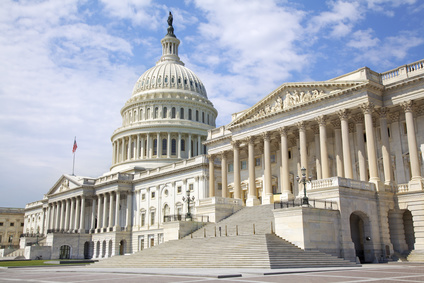The Supreme Court of the United States recently held that class action plaintiffs cannot stipulate to a voluntary dismissal with prejudice, then appeal the trial court’s prior interlocutory order striking their class allegations because a voluntary dismissal does not qualify as a “final decision” under 28 U.S.C. §1291 and improperly circumvents Federal Rule of Civil Procedure 23(f). A copy of the opinion in Microsoft Corp. v. Baker et al. is available at: Link to Opinion. A group of purchasers of Microsoft’s Xbox 360 gaming console filed a putative class action alleging that the Xbox was designed defectively because it scratched…
The U.S. Court of Appeals for the Sixth Circuit recently concluded that Michigan’s assignment of rents statute sufficiently deprived the assignor of the ownership of the rents such that the rents could not be included in the assignor’s bankruptcy estate. The primary issue before the Court was whether Michigan’s assignment of rents statute allowed the assignor to retain sufficient rights in the rents for the rents to be included in the assignor’s bankruptcy estate. The bankruptcy court determined that the debtor’s assignment of the rents gave the assignee a security interest in the rents but did not change the ownership,…
The U.S. Court of Appeals for the Second Circuit recently affirmed the dismissal of LIBOR-manipulation fraud claims brought by a group of hotel-related entities and their investor against a bank and two of its subsidiaries. In so ruling, the Second Circuit held that: (a) the borrower and related entities lacked standing to sue because they failed to list their potential claims in their bankruptcy case and the claims were barred by the doctrine of judicial estoppel; and (b) the claims of the investor and guarantors were untimely and barred by the law of the case. A copy of the opinion…
The U.S. Court of Appeals for the Eighth Circuit recently held that two borrowers’ conclusory affidavits by themselves were insufficient to rebut the presumption of delivery under the federal Truth in Lending Act, 15 U.S.C. § 1635(c), where the borrowers acknowledged in writing at the closing that they received the disclosures required under TILA. A copy of the opinion in Alan Keiran v. Home Capital, Inc. is available at: Link to Opinion. In 2010, before the Supreme Court of the United States’ ruling in Jesinoski v. Countrywide Home Loans, Inc., 135 S. Ct. 790 (2015), the borrowers filed this action…
With its unanimous ruling yesterday that a debt buyer is not a “debt collector” under at least one reading of the federal Fair Debt Collection Practices Act, the U.S. Supreme Court offered some clarity to the financial services industry seeking to assess debt purchaser FDCPA liability. It did, however, refuse to address an alternative interpretation that will likely be used in an attempt to end-run the ruling. The decision in Henson v. Santander Consumer USA Inc. is available at: Link to Opinion. Debt Collector Must Be Collecting for ‘Another’ Santander Consumer USA Inc. acquired defaulted loans from CitiFinancial Auto and then…
The U.S. Court of Appeals for the Eighth Circuit recently affirmed the dismissal of a putative class action brought under the federal Telephone Consumer Protection Act (TCPA) for making unsolicited telemarketing calls. The Eighth Circuit held that the plaintiff had given prior express written consent to receive the calls, and the trial court properly considered redacted business records that showed the consumer had given his prior express written consent to be called. A copy of the opinion in Zean v. Fairview Health Services is available at: Link to Opinion. A consumer who purchased a medical device filed a putative class…
A purchaser of a defaulted debt who then seeks to collect the debt for itself is not a “debt collector” subject to the federal Fair Debt Collection Practices Act under an opinion delivered today by the U.S. Supreme Court. The issue before the Court was whether a purchaser of defaulted debt meets the FDCPA’s definition of a “debt collector” as one who “regularly collects or attempts to collect . . . debts owed or due . . . another.” 15 U. S. C. §1692a(6). Here, Santander Consumer USA Inc. acquired defaulted loans from CitiFinancial Auto and then began to collect…
Fla. Court Holds Alleged ‘No Lawful Basis to Debit’ Enough to State Claim Under Reg J and UCC Art 4A

The Circuit Court of the Eleventh Judicial Circuit in Miami-Dade County, Florida recently dismissed equitable and tort claims for restitution, “money had and received,” negligence, indemnification, tortious interference and conversion brought by a company against its bank for reversing a wire transfer due to fraud. However, the Court refused to dismiss the account holder’s claim for breach of the deposit agreement. The Court held that Regulation J (12 CFR § 210.25-210.32) and Article 4A of the Uniform Commercial Code (UCC) were incorporated into the deposit agreement at issue, and these provisions only allowed the bank to reverse the payment under…
The U.S. Court of Appeals for the Tenth Circuit recently affirmed a trial court’s denial of a motion to compel arbitration against non-signatory third-party beneficiaries who did not accept the benefits of the contract. A copy of the opinion in Jacks v. CMH Homes is available at: Link to Opinion. In 2009, a buyer financed a mobile home purchase with a manufactured-home retail installment contract. The contract contained an arbitration provision that purportedly extended to “all co-signors and guarantors … and any occupants of the manufactured home.” Five years later, the buyer and her family sued the home’s manufacturer and…
The U.S. Court of Appeals for the District of Columbia Circuit recently held that the Federal Communications Commission’s 2006 Solicited Fax Rule exceeded its authority under the federal Telephone Consumer Protection Act (TCPA) to the extent that it requires opt-out notices on fax advertisements sent with the permission of the recipient (“solicited” faxes) as well as on unsolicited fax advertisements. A copy of the opinion in Bais Yaakov of Spring Valley, et al v. FCC, et al is available at: Link to Opinion. A company that sells generic drugs faxed advertisements to small pharmacies containing weekly pricing information and “specials.” Many…
The U.S. Court of Appeals for the Eleventh Circuit recently affirmed the dismissal of a complaint alleging violations of the federal Telephone Consumer Protection Act, the federal Fair Debt Collection Practices Act (FDCPA) and its analogue under Florida state law, because the plaintiff previously filed a separate lawsuit against the same defendant alleging violations of the TCPA based on the same conduct. Because the Eleventh Circuit concluded that the claims asserted in the second action were based on the same nucleus of operative facts, the plaintiff was barred from splitting her claims among the lawsuits. A copy of the opinion…
The U.S. Court of Appeals for the Ninth Circuit recently affirmed a trial court’s summary judgment ruling in favor of a bank and against the City of Los Angeles on the City’s claims that the bank violated section 3605(a) of the federal Fair Housing Act (FHA) through alleged discriminatory lending practices, and that the bank was unjustly enriched. A copy of the opinion in City of Los Angeles v. Wells Fargo & Co. is available at: Link to Opinion. As you may recall, section 3605(a) of the FHA makes it unlawful for financial institutions “to discriminate against any person in…











